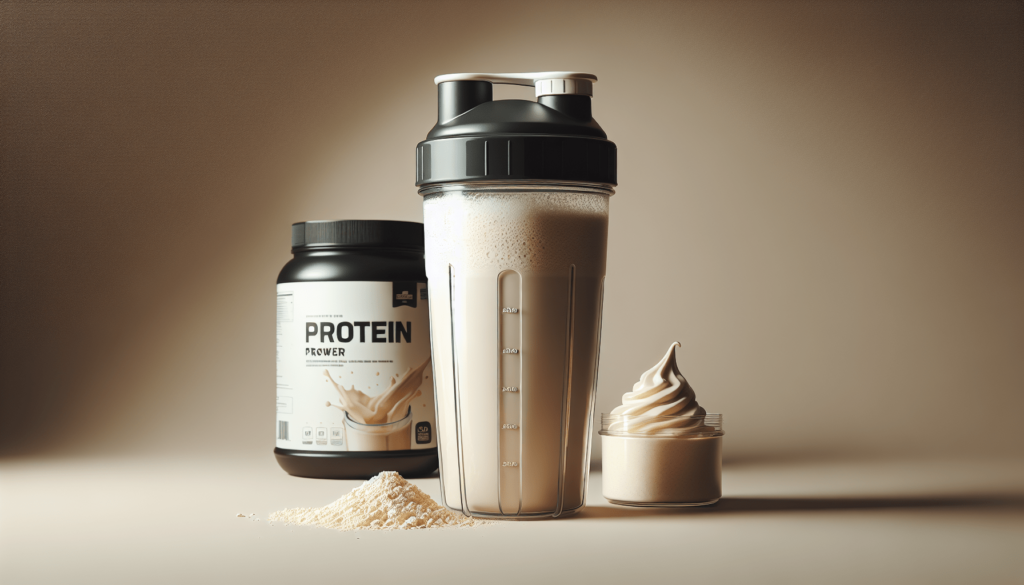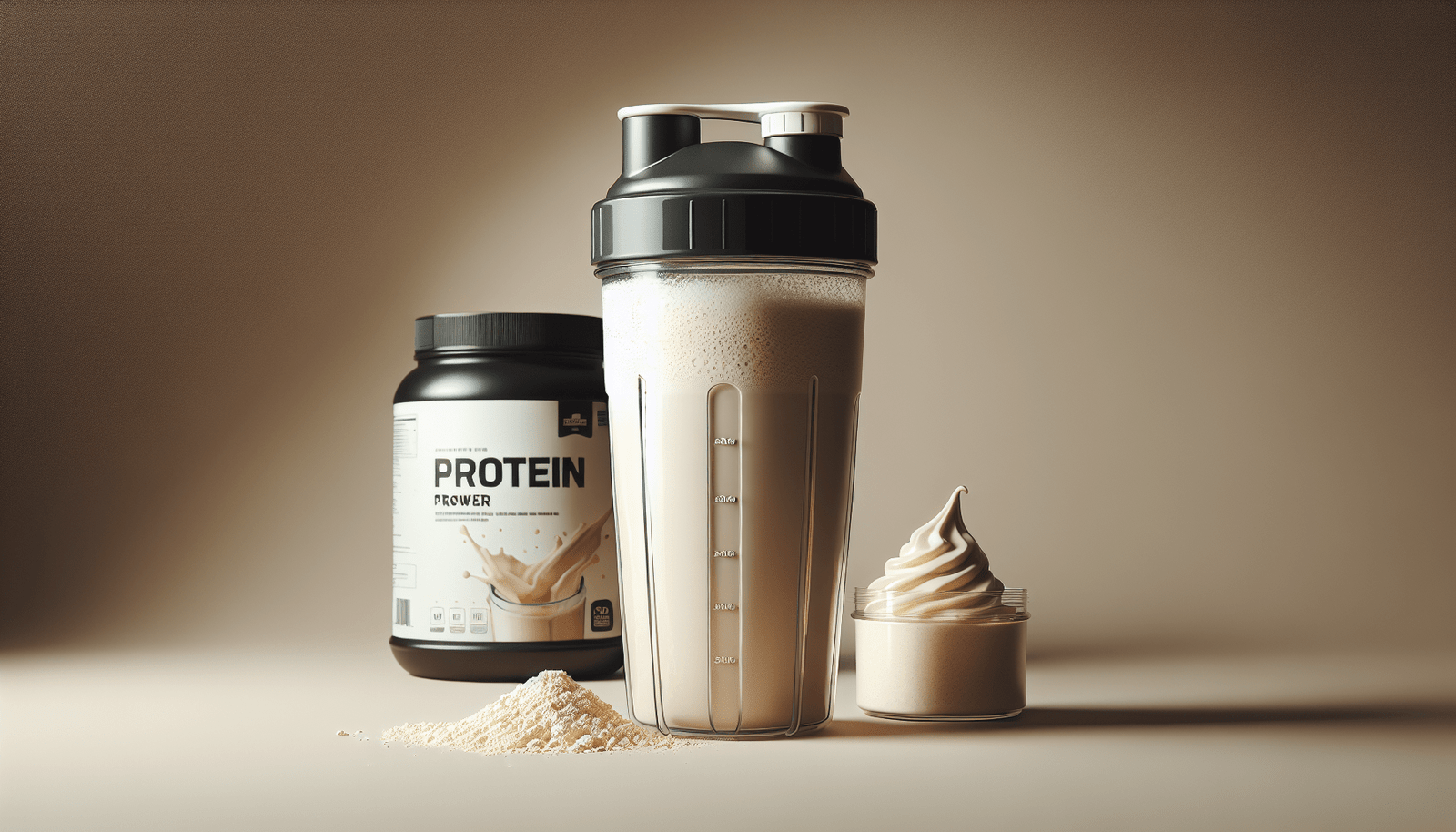Hey there! Ready to boost your fitness game? Look no further than protein powders. With so many options out there, it can be overwhelming to choose the one that best suits your needs. Whether you’re aiming to build muscle, recover faster, or simply increase your protein intake, this article will guide you through the world of protein powders, helping you make an informed decision. From whey and casein to plant-based alternatives like pea and hemp protein, we’ll break down the pros and cons of each option, allowing you to navigate the vast variety with ease. Get ready to power up your workouts and achieve your fitness goals!

Understanding Protein Powders
Protein powders have become increasingly popular in the health and fitness world, as they provide a convenient and efficient way to supplement your protein intake. Whether you are an athlete looking to support muscle recovery or simply aiming to add more protein to your diet, protein powders can be a valuable addition. However, with so many options available on the market, it can be overwhelming to choose the right one for your needs. In this article, we will explore the different types of protein powders, their benefits, and how to choose the one that is best suited to your goals and dietary restrictions.
Different Types of Protein Powders
Protein powders come in a variety of formulations, each with its own unique set of properties. Some of the most common types of protein powders include whey, plant-based, egg, soy, and collagen protein powders.
Whey Protein Powders
Whey protein is derived from milk and is considered the gold standard when it comes to protein supplementation. It is rapidly absorbed by the body and contains a complete amino acid profile, making it an excellent choice for muscle recovery and growth. Whey protein powders come in three main forms: whey protein concentrate, whey protein isolate, and whey protein hydrolysate. Each form has varying levels of protein content and processing methods, which affects the overall quality and cost of the product.
Plant-Based Protein Powders
Plant-based protein powders have gained popularity in recent years due to the increasing demand for vegan and vegetarian options. These powders are made from a variety of plant sources, such as peas, rice, hemp, and soy. They provide a complete or incomplete amino acid profile depending on the combination of plant proteins used. Plant-based protein powders are not only suitable for individuals following a plant-based diet but also offer a range of health benefits, including reduced inflammation and improved digestion.
Other Protein Powder Options
In addition to whey and plant-based protein powders, there are other options available on the market that cater to specific dietary needs and preferences. Egg protein powders are a rich source of essential amino acids and are suitable for individuals with dairy or soy allergies. Soy protein powders are derived from soybeans and provide a complete amino acid profile. Collagen protein powders, on the other hand, are made from animal sources and contain specific amino acids that support joint, skin, and bone health.
Protein Powder Benefits
Protein powders offer a wide range of benefits beyond muscle recovery and growth. Here are some of the key advantages of incorporating protein powders into your diet:
-
Convenient and quick: Protein powders are an easy and convenient way to increase your protein intake, especially for individuals with busy lifestyles. They can be easily mixed with water, milk, or your favorite beverage for a quick post-workout or on-the-go snack.
-
Muscle recovery and growth: Protein is crucial for repairing and building muscle tissue. By consuming protein powders, you can provide your body with the necessary amino acids it needs to recover and grow after intense workouts.
-
Weight management: Protein powders can help with weight management by promoting satiety and reducing cravings. Protein is highly satiating and can help you feel fuller for longer, which may lead to reduced calorie intake and improved weight loss.
-
Nutrient-rich: Protein powders are packed with essential nutrients, including vitamins, minerals, and antioxidants. By consuming protein powders, you can easily boost your daily nutrient intake and support overall health and wellbeing.
-
Versatile and customizable: Protein powders can be incorporated into a wide range of recipes, including smoothies, baked goods, and snacks. This versatility allows you to customize your protein intake to suit your preferences and dietary needs.
Protein Powder Sources
Protein powders can be derived from a variety of sources, each offering its own unique nutritional profile. Understanding the different sources of protein powders can help you make an informed decision when choosing the one that aligns with your dietary preferences and goals. Here are some popular sources of protein powders:
-
Whey protein: Derived from milk, whey protein is a complete protein source that contains all nine essential amino acids. It is quickly absorbed by the body and is an excellent choice for individuals looking to support muscle recovery and growth.
-
Plant-based protein: Plant-based protein powders are derived from sources such as peas, rice, hemp, and soy. These powders may provide a complete or incomplete amino acid profile, depending on the combination of plant proteins used. They are suitable for individuals following a vegan or vegetarian diet and offer a range of health benefits.
-
Egg protein: Egg protein powders are made from egg whites and provide a complete amino acid profile. They are an excellent choice for individuals with dairy or soy allergies and offer a high-quality source of protein.
-
Soy protein: Derived from soybeans, soy protein powders offer a complete amino acid profile and are a popular choice for vegetarian and vegan individuals. They are also rich in antioxidants and may provide additional health benefits, such as improved heart health.
-
Collagen protein: Collagen protein powders are made from animal sources, such as bovine or marine collagen. They contain specific amino acids that support joint, skin, and bone health. Collagen protein powders are often chosen for their potential anti-aging and skin-rejuvenating properties.
Understanding the different protein powder sources can help you determine which one is best suited to your dietary preferences, restrictions, and health goals. It is important to choose a protein powder that aligns with your individual needs to optimize the benefits it can provide.


